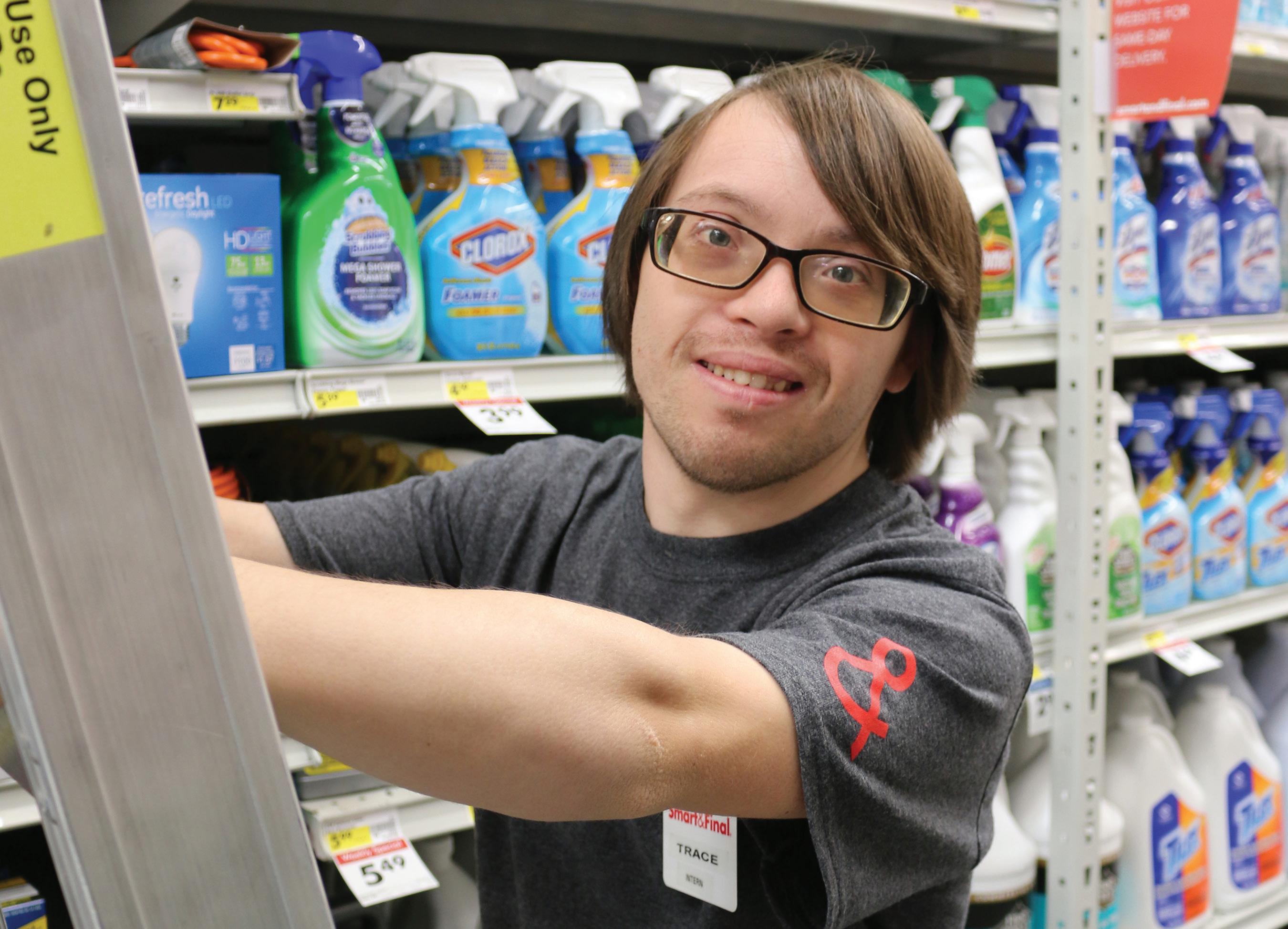
3 minute read
GET to WORK! Vocational programs for teens and young adults
For people with special needs, vocational training can pave the way to confidence, employment and success. Paid work fosters a connection to the greater community. It improves an individual’s financial stability, which can benefit the whole family. Best of all, it provides a sense of purpose and accomplishment. Here’s a look at a variety of vocational programs in San Diego County.
TMI (Toward Maximum Independence) TMI offers a variety of employment assistance and skillbuilding programs—including paid internships and onsite job coaching. The organization’s goal is to help clients secure paid work in spaces where they can fully integrate with coworkers who do not have special needs. During intake, a TMI manager determines which programs will be necessary to meet a client’s goals. Over time, they work together to choose an appropriate workplace.
“We focus on the individual’s preferences to find placements that match the client’s needs and vocational aspirations,” says Community Outreach and Resource Specialist Melinda Lara. According to Lara, quality of life is greatly improved when clients find work. “Paid employment leads them on a path to independence and self-reliance,” she says.
In 2019, TMI placed 80 clients in jobs (that paid minimum wage or more) at companies like Smart & Final, Barnes & Noble, Ross and Amazon. If employment is not a client’s primary focus, the organization offers day programs with unpaid opportunities like volunteering or social coaching. To participate in TMI’s vocational programs, individuals must be 18 or older and qualify for assistance through the Regional Center or Department of Rehabilitation. To learn more, visit www.tmi-inc.org.
Photos courtesy of TMI
TERI (Training, Education & Resource Institute) TERI offers diverse work opportunities for clients who utilize their day programs, nonpublic schools or group homes. Opportunities include working at TERI’s Resale Shop, the in-house recycling center or the Oceanside Farmers’ Market— where items made by clients are offered for sale. For those looking to expand vocational skills, TERI offers training in woodworking, craft production, metal work, floral arts and more.
TERI also boasts a large-scale agriculture program, which provides opportunities to pursue work in harvesting or distributing produce. The animal husbandry program is another path for those who hope to pursue farm work. At TERI’s Kilmer College, culinary classes prepare students for food service-related employment. According to TERI’s website, these programs offer access to careers and experiences not traditionally available to adults with special needs. To learn more, visit www.teriinc.org.
NFAR (National Foundation for Autism Research) Tech companies report that people with Autism are uniquely suited to careers in software testing. These jobs require attention to detail, logical thinking patterns and inclination towards repetitive work—areas in which many people with Autism excel. NFAR offers adapted training to prepare students for entry level work as Software QA Testers. The seven-month course includes three 3-hour classroom sessions each week, plus an internship providing 160 hours of work experience. Upon completion of the coursework, students will be prepared to take the Software Testing Qualification Board test to gain their CTFL (Certificate in Testing – Foundation Level).
NFAR also offers vocational training for entry-level office positions. The coursework covers light technical skills and soft skills to help people with Autism succeed in a range of positions from data entry to light manufacturing. All training programs include job search preparation. Students learn how to write a resume, prepare a portfolio and what to expect in an interview. For more information, visit www.nfar.org.
Workability III at the San Diego Community College District This program provides career guidance for students with disabilities—helping them acquire the tools needed to meet their employment goals. To be eligible, a student must qualify for services through the Department of Rehabilitation and must attend classes within the San Diego Community College District—this includes City, Mesa and Miramar Colleges, as well as San Diego Continuing Education campuses.
Workability III participants receive career counseling and vocational training to help identify and hone their marketable skills. Counselors are available to assist with job hunting and job retention after a student is hired. They work with local employers, providing free training to help managers understand the American Disabilities Act (ADA) and workplace modifications. To learn more, visit www.sdccd.edu/ about/departments-and-offices/student-services-department/ dsps/workability/index.aspx.

Photos courtesy of TMI
Anne Malinoski is a contributing writer and mother of two boys. Her older brother received life-changing career assistance from TMI.





